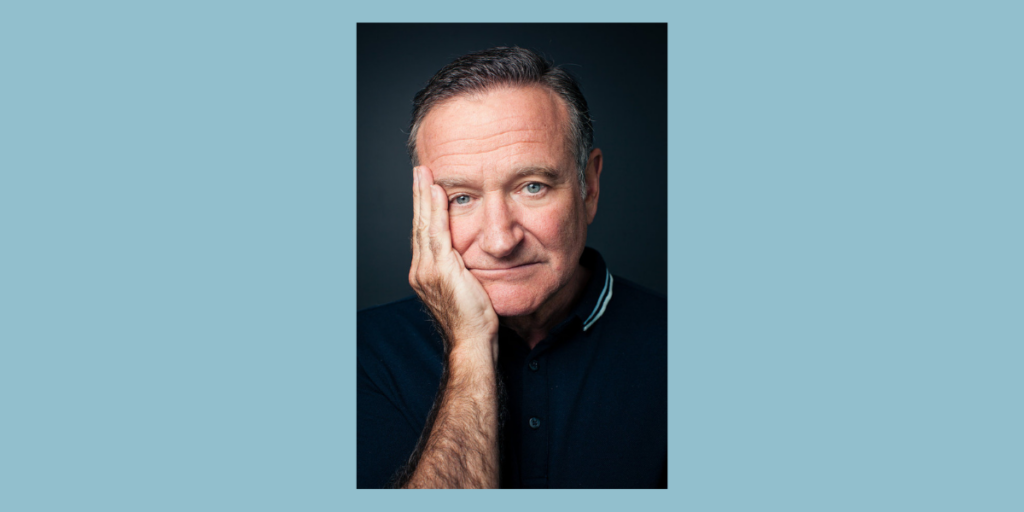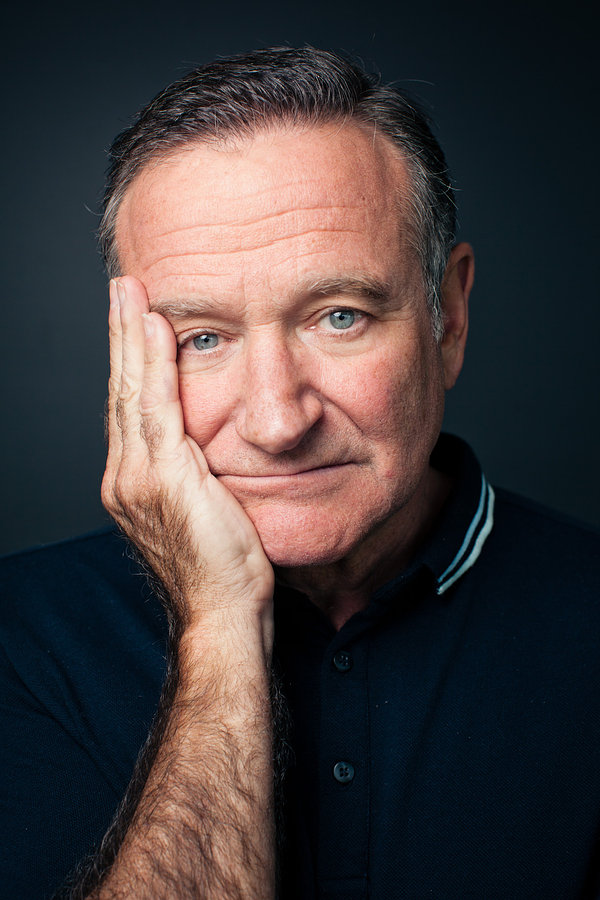
Tenth Anniversary of Robin William’s Death is a Reminder of Abortion Sorrow
By: Mary FioRito
On August 11, it will be ten years since actor Robin Williams took his own life. He was 63. His suicide shocked the world – the comedian who could light up a room and make you laugh with just one look had been so depressed he no longer wished to live? It just did not make sense.
Although he was initially misdiagnosed with Parkinson’s, Williams had actually been suffering from Lewy Body dementia (LBD), a type of dementia related to Parkinson’s disease, but with distinct qualities and symptoms. Frequently, Lewy body dementia involves hallucinations of people who are not present, often children or “little people.” In fact, it is estimated that as many as 80% of people with Lewy body dementia experience visual hallucinations and often express ideas not based in reality.
Some studies suggest that those with Lewy body dementia at are a much higher risk of suicide and suicidal ideation, and that they are more prone to act out on those ideas because of the complex nature of Lewy’s effect on the brain’s impulse control mechanisms. Tellingly, Williams’ wife referred to his illness as, “The terrorist inside my husband’s brain.” Williams had also had long-documented struggles with alcohol and cocaine addiction and, in fact, had gone through another stint in rehab just prior to his death.

Yet another factor may have contributed to Williams’s depression: he was the father of an aborted child. Although met with skepticism and outright scorn and derision by the left-leaning press, Robins had, over the years, occasionally spoken of his unborn baby as a child he would have welcomed had his personal circumstances been different. He told biographer Andy Dougan, in the memoir, Robin Williams (Thunder’s Mouth Press, 1999) the couple had decided on abortion, “because we were too young and it wasn’t right.”
Williams’ comments are reminiscent of the recollections of Brittany Spears in her recent autobiography, The Woman in Me (Gallery Books, 2023). Spears’ revealed that during her four-year relationship with singer Justin Timberlake, she had become pregnant and that, under pressure from Timberlake, she used abortion pills at home to end the life of their unborn child. “If it had been left up to me alone, I never would have done it,” Spears wrote. “To this day, it’s one of the most agonizing things I have ever experienced in my life… but Justin…said we weren’t ready to have a baby in our lives, that we were way too young.”
There exists reliable data on men and abortion that may shed light on the impact abortion can have on a man’s mental health. Approximately ¾ of men who are the fathers of aborted children report adverse changes in their lives. Among the most commonly cited are: anxiety, depression, isolation, anger, and substance abuse. 83% of post-abortive men admitted they “could have benefitted from help” in the years following their partner’s abortion. While some proponents of abortion claim that post-abortion aftermath – especially in men – is a sheer figment of the pro-life imagination, acknowledgment of abortion’s impact on men can be found from secular, non-religious experts in grief in trauma. Mary Lamia, the author of Grief Isn’t Something to Get Over: Finding a Home for Memories and Emotions After Losing a Loved One (American Psychological Association Books, 2022) noted in Psychology Today that, “Common experiences among men whose partners have an induced abortion include ambivalence, loss, grief guilt, self-reproach, a feeling of responsibility, depression, anger, sexual dysfunction, depression, and post-traumatic stress response.”
The anniversary of Williams’ tragic death offers a moment for the pro-life community to reflect on abortion’s impact on men. It is not easy to disentangle the many factors that could have contributed to his death: the abortion, his subsequent drug and alcohol addiction, and the Lewy body dementia which robbed him of his sharp mind and clear thinking.
Yet it is interesting to note that, despite his advocacy for legal abortion as a Hollywood celebrity, Williams seemed to carry with him a deep regret, a sort of “I just wish things had been different,” attitude.
Like any of us, Williams is entitled to God’s mercy and, on the anniversary of his death, we should pray that he is now reunited with his child, and that they are reconciled.
If you know a man who is struggling with post-abortion aftermath, resources and referrals can be found through:
Supportafterabortion.com and
Hopeafterabortion.com
Mary FioRito is an attorney and Cardinal Francis George Fellow at both the Ethics and Public Policy Center, and the deNicola Center for Ethics and Culture. She writes from Chicago.
